Water & Hygiene
Access to safe drinking water and hygiene services
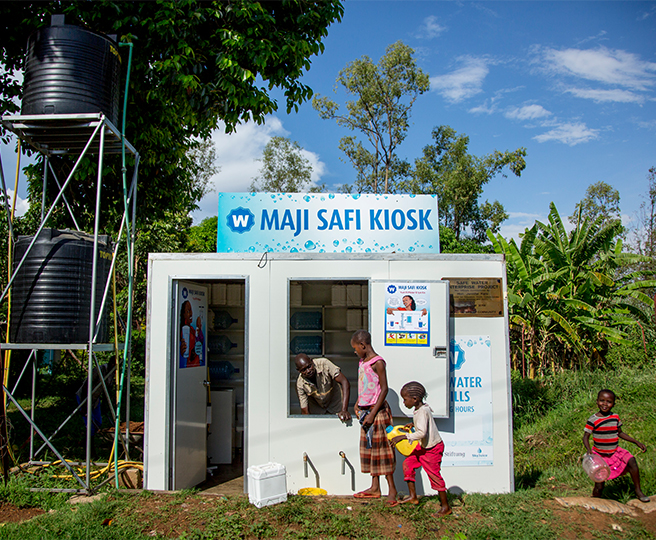
Safe access to water and sanitation for all – this is the goal defined by the United Nations in its Sustainable Development Goals. Together with social enterprises, local authorities, partners from science and international cooperation, we are committed to pursuing this vision. In East Africa, we are strengthening the development of sustainable structures that ensure access to clean drinking water and hygiene services in underserved communities.
Water is a prerequisite for health, productivity and economic development
Water is not only a human right, but also represents the foundation for the sustainable development of societies. Access to water and sanitation impacts on food and energy supplies, health, the economy and the environment (Unesco 2015).
Diseases such as diarrhea, typhoid and cholera can be prevented by a secure supply of water and sound hygiene. According to the WHO (2023), this could save around 1.4 million lives every year. Added to this, less absenteeism from work, school and training, which improves the career prospects of young people in particular. A functioning water infrastructure eliminates long and risky routes. When heavy water canisters no longer have to be transported over long distances, there are fewer musculoskeletal disorders, while individual and collective health and productivity improve. And when less time and energy has to be spent on basic needs, there is scope for social participation and co-determination.
Climate crisis endangers water resources
The global climate crisis is having a tremendous impact on water resources worldwide. Floods, droughts, rising sea levels, desertification, the desiccation of water bodies, deterioration of water quality and extreme weather events are the result. Although countries in the Global South contribute the least to the climate crisis, it is there that people are most affected, especially vulnerable groups. This is why sustainable structures and a climate-resilient water supply are becoming increasingly vital in these regions in particular.
Women and children are often disadvantaged
Water supply is also a relevant factor for gender equality and equity. In 7 out of 10 households without water connections, women and girls are responsible for fetching water (WHO 2023). They often travel long distances and are exposed to attacks, thereby losing a great amount of time for education, work and leisure.
But this is not the only aspect that diminishes equal opportunities for education: Girls are often absent from class during their periods if there are no, or only inadequate sanitary facilities at school. In sub-Saharan Africa, for example, they miss around 20% of a school year. That is why we are looking for solutions to build competence and knowledge about health and the availability of hygiene products for women and girls.
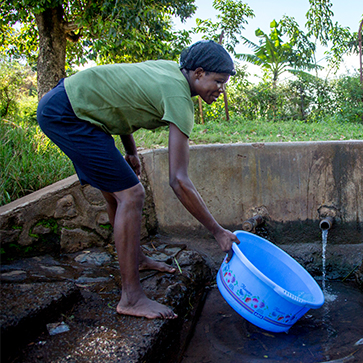
Social entrepreneurial and self-reliant solutions for drinking water and hygiene
Our programs endeavor to bring about change in the drinking water supply and hygiene conditions in East Africa. Infrastructures in conurbations are overburdened, while rural areas are generally inadequately developed. For the most part, people are dependent on supplies and deliveries from smaller private water suppliers.
Innovative business models for long-term impact
Consequently, the private sector plays a decisive role alongside the public sector. That is why we work closely with local founders and social enterprises – among other things on the development of innovative business models, financing options and strategic partnerships. We also provide support in the form of further training, coaching and mentoring. In addition to the activities in the water sector, we also want to improve the general hygienic conditions through access to hygiene articles and building up competencies.
Thanks to the social entrepreneurial approach, the services are financially secure and are capable of can closing gaps sustainably and over the long term. The focus is on the communities for which products and services are developed. In this way, local solutions for social and ecological problems are developed in a joint effort.
Strong partnerships for local development
Our focus is on Kenya and Uganda. Together with our partners, our work there contributes to the following Sustainable Development Goals:
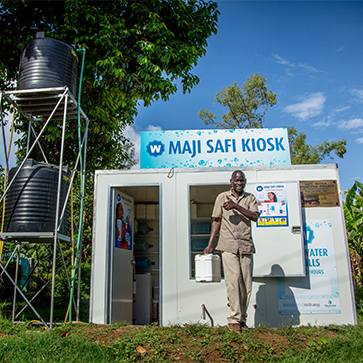
Case Study
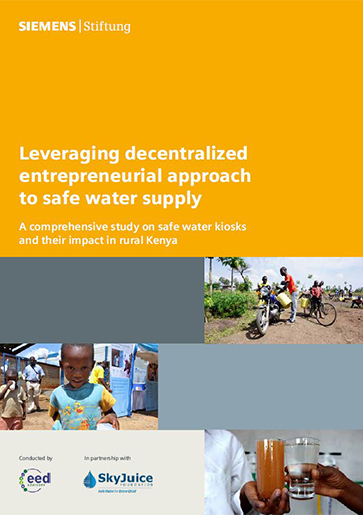
Water kiosks as a model for sustainable decentralized drinking water supply
In 2012, we launched “Safe Water Enterprises” in Kenya and Uganda – kiosks providing clean drinking water through innovative technology and an entrepreneurial model. By 2022, we handed over eleven kiosks to local communities, now operating independently in cooperation with district governments or water suppliers. Over 33,000 people across seven districts benefit from this initiative. An evaluation outlines key findings and success factors for sustainable decentralized drinking water supply.
Our water portfolio at a glance
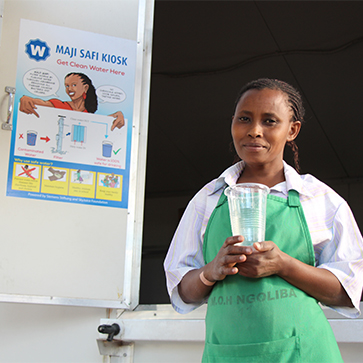
Decentralized kiosk solutions for the local water supply: Safe Water Enterprises
In the year 2012, we launched the Safe Water Enterprises project together with the Sky Juice Foundation Inc. In close cooperation with local communities, we have since set up a total of 20 kiosks in Uganda and Kenya. A sustainable business structure enables previously underserved communities to buy clean water at affordable prices, while covering the company’s running costs.
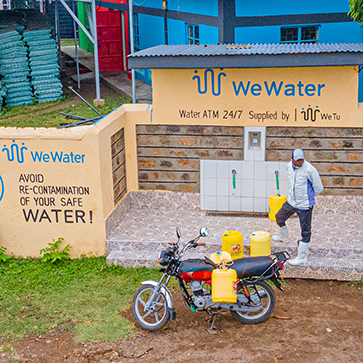
Social enterprise WeTu: Drinking water supply nearby Lake Victoria
WeTu (Swahili for “ours”) is a Kenyan social enterprise founded in 2019 by Siemens Stiftung as an independent, locally run organization. The aim is to improve access to safe water, clean energy and jobs in the villages surrounding Lake Victoria. In addition to clean water, the individual hubs also offer products and services for solar lighting and charging, as well as for e-mobility.
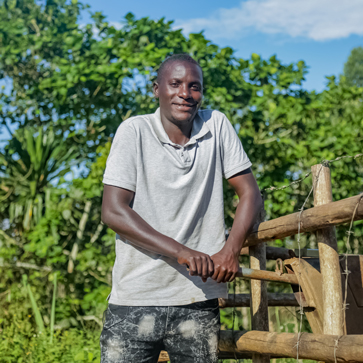
Alliances for WASH: multisectoral cooperation project TeamUp
TeamUp Uganda opens up new life perspectives for young people in rural Uganda and supports them in exploring job opportunities, actively participating in political life and leading a healthy, self-determined life. We are contributing our expertise in water and hygiene issues to the multi-sectoral program. Cooperation partners comprise the German Federal Ministry for Economic Cooperation and Development (BMZ), the German Foundation for World Population and the Hanns R. Neumann Foundation, addition to local partners Action 4 Health Uganda and Whave Solutions.
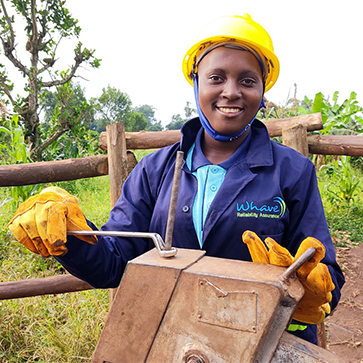
Establishment of cost-effective maintenance systems: Rural Water Supply Uganda
Since 2018, we have been cooperating with the social enterprise Whave Solutions Ltd . in Uganda with the aim of strengthening the sustainability of local water solutions. Due to a lack of maintenance work, the majority of water sources frequently fail. Whave offers a cost-effective maintenance service system and works with local and national governments. This will ensure access to drinking water for 330,000 citizens.
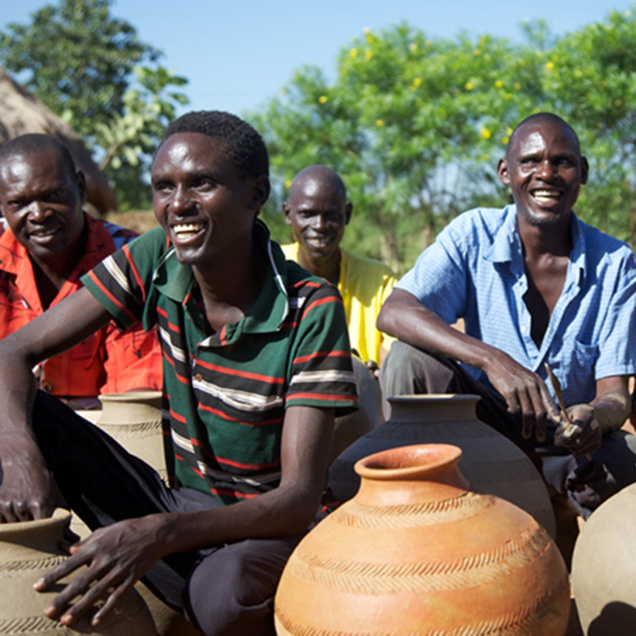
Maji Health: Preventing recontamination of clean drinking water
Time and again, we have witnessed that clean drinking water is recontaminated due to various factors. Studies also show how important the last stage of water consumption is. Therefore, together with our partner Whave Solutions in Uganda, we are testing a series of innovative measures that incorporate local traditions and indigenous knowledge to prevent recontamination of drinking water and to promote health and hygiene.
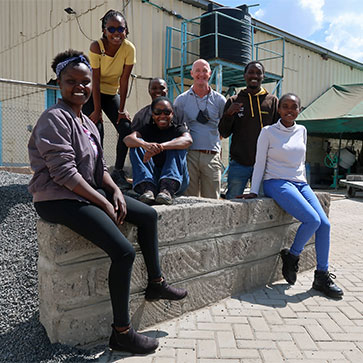
Ecosystem for social enterprises: empowering people. Network
By way of our empowering people. Network we support social enterprises in various sectors through coaching, mentoring, consulting, training and advocacy – including the social enterprise from the water sector. Kwangu Kwako Ltd., for example, offers housing solutions for regions that are frequently impacted by natural disasters, providing affordable, modular housing units that include sanitary facilities.
Network for reliable water supplies, health and social development in Africa
As part of a broad, extensive network, we are committed to ensuring reliable water supplies as well as better health and economic development in rural areas in Africa.
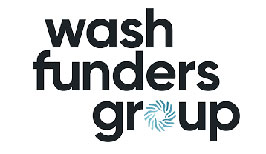
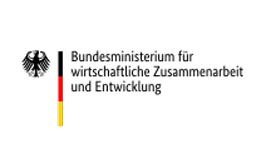
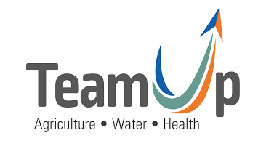
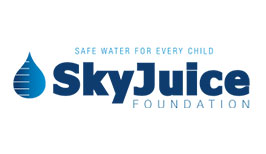
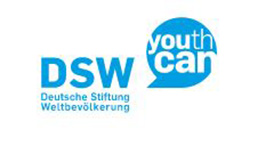
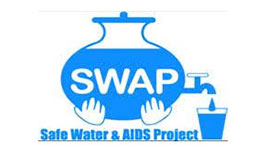
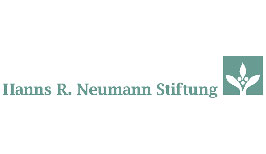
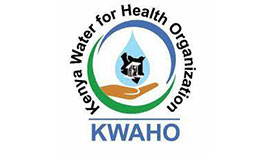
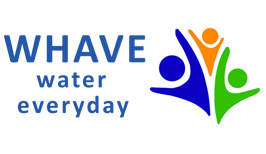
Would you like to find out more? Or would you like to work with us to promote water projects in sub-Saharan Africa? We look forward to an exchange!
Social Entrepreneurship in the Global South – learn more!
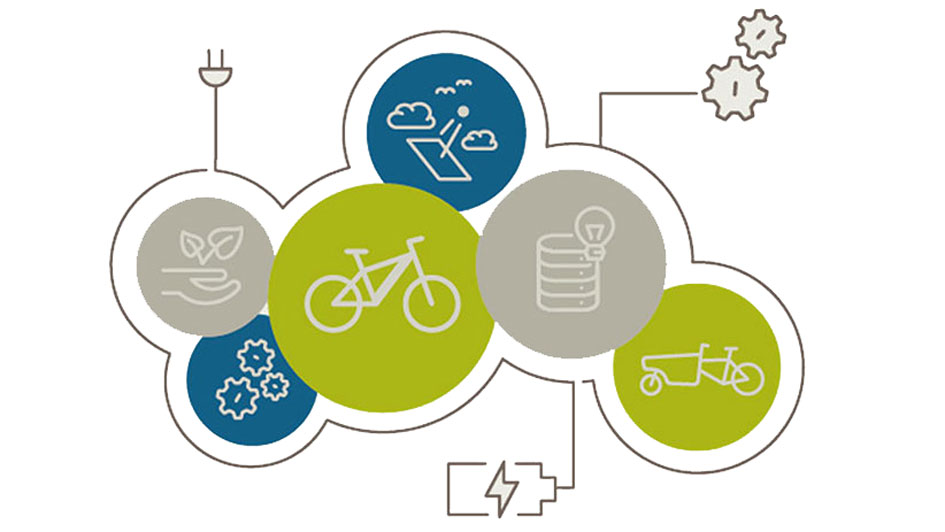
Revolutionizing e-mobility in Kenya: Three innovative projects spearhead sustainable solutions
- GIZ and Siemens Stiftung have selected three Kenyan enterprises to carry out research and development projects in the field of e-mobility. Over a period of twelve months, they will work on market-based solutions and increase their ecological, economic and social impact.
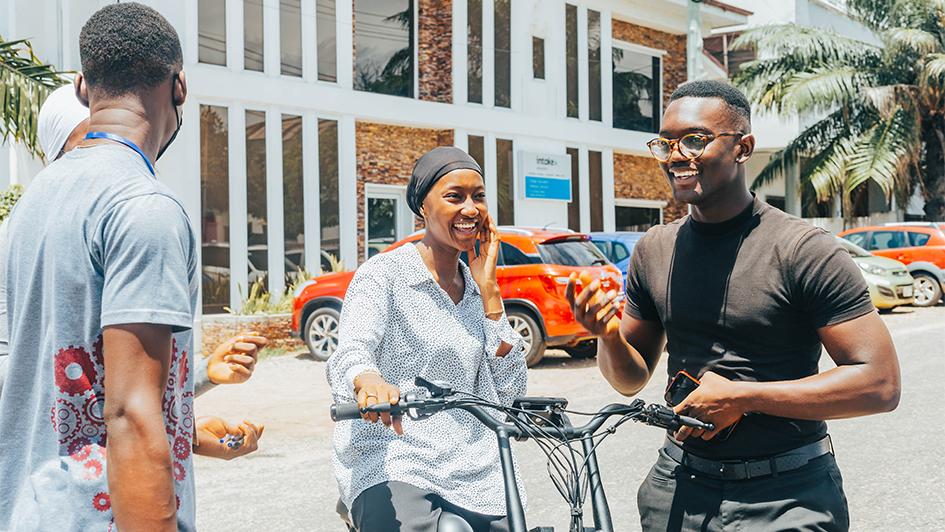
Spotlight On… The Principles of Social Entrepreneurship
- In three virtual sessions, experts lead through the topics of Impact Entrepreneurship and the Triple Bottom Line, Impact Data Generation, and Impact Story Telling.


